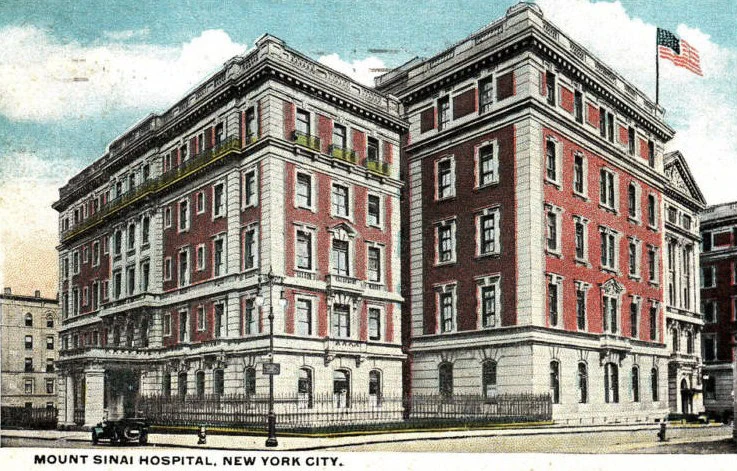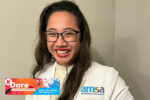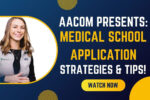
If you’re a motivated undergraduate looking to carve a unique path to medical school—one that values creativity, intellectual breadth, and a more holistic approach to education—the Donald and Vera Blinken FlexMed Program at the Icahn School of Medicine at Mount Sinai might be exactly what you need. Often simply referred to as “FlexMed,” this early assurance program offers an alternative route to medical school for students from a broad array of academic backgrounds, including the humanities, social sciences, computational sciences, engineering, and of course, the natural sciences.
In this blog post, we’ll explore what makes the FlexMed Program so distinctive, who is eligible to apply, how the application process works, and how to position yourself for success. We will also address common questions regarding program requirements, benefits, and potential pitfalls. By the end, you’ll have a thorough understanding of whether FlexMed aligns with your professional ambitions—and, if so, how to start preparing for this remarkable opportunity.
1. What Is the FlexMed Program?
Launched in 2013 (though its roots extend further back), the Donald and Vera Blinken FlexMed Program at Icahn School of Medicine at Mount Sinai is an early assurance program designed for second-year undergraduate students from any major or field of study. Unlike traditional pre-med tracks that emphasize a standardized set of prerequisite courses and the MCAT (Medical College Admission Test), FlexMed specifically allows exceptional undergraduates to secure a spot at the Icahn School of Medicine at Mount Sinai without taking the MCAT and with more flexible undergraduate science requirements.
The founding philosophy behind FlexMed is to cultivate a more diverse generation of doctors—physicians who, from the start, have honed not only their scientific knowledge but also the critical and creative thinking skills gleaned from studying the humanities, social sciences, computational fields, and beyond. The program’s guiding principle is that breadth of thinking translates into broader—and better—approaches to patient care, medical research, and health policy.
Key Takeaways
- MCAT Not Required: FlexMed is best known for waiving the MCAT requirement for accepted students, freeing them to focus on their academic passions as undergraduates.
- Diverse Academic Paths: The program values applicants from all majors—music, engineering, literature, economics, etc.
- Early Assurance: Students typically apply in the second year of college, ensuring they gain admission to Icahn School of Medicine at Mount Sinai well before the traditional application cycle.
2. Eligibility and Selection Criteria
A. Who Can Apply?
- Undergraduate Sophomores: Generally, you must be in your second year of college at a regionally accredited institution in the United States or Canada.
- Any Major: There is no restriction on field of study, but you must demonstrate strong academics as well as a passion for medicine or healthcare in some capacity.
- Academic Standing: While specific GPA cutoffs aren’t always publicly stated, a competitive GPA (especially in the sciences) is an asset. Additionally, applicants need to demonstrate the initiative and curiosity that make them stand out academically and intellectually.
B. Selection Factors
- Academic Excellence: Strong grades in both science and non-science disciplines signal that you can handle the rigor of medical training.
- Passion for Medicine: Although FlexMed is not your traditional pre-med path, the committee wants to see a genuine interest in healthcare, service, and the broader medical field.
- Breadth of Interests: Because FlexMed specifically encourages intellectual exploration, applicants who bring unusual or diverse perspectives—through interdisciplinary work, research, extracurriculars, or volunteer experiences—often stand out.
- Evidence of Leadership and Initiative: Whether through involvement in campus organizations, research labs, community service, or creative endeavors, demonstrating responsibility and leadership will strengthen your candidacy.
3. Why FlexMed Stands Out
A. Flexibility in Undergraduate Curriculum
One of FlexMed’s biggest selling points is that it minimizes the restrictive nature of typical pre-med requirements. Traditionally, pre-med students must complete a list of prerequisite courses (biology, chemistry, physics, organic chemistry, etc.) and then invest months (even years) preparing for the MCAT. While FlexMed applicants still need a robust foundation in the sciences, the program’s approach is more flexible:
- Fewer Prescribed Prerequisites: Students can shape their undergraduate education around areas of passion—English literature, computer science, sociology, or even music—while still fulfilling essential knowledge areas required by the program.
- MCAT Waiver: Eliminating the MCAT exam allows accepted students to use that time and energy for deeper or more varied academic exploration.
B. Integrated Focus on Research and Interdisciplinary Learning
Icahn School of Medicine at Mount Sinai is known for its strengths in research and innovation. FlexMed participants often get early exposure to these elements:
- Research Opportunities: Students can align with research projects as undergraduates or upon acceptance, bridging their academic interests with practical, hands-on medical or interdisciplinary investigations.
- Interdisciplinary Projects: Because the program encourages cross-disciplinary study, you might find yourself drawing connections between, say, environmental policy and public health, or AI and geriatric care, well before starting medical school.
C. Early Mentorship and Advising
Once accepted, FlexMed students gain access to advising and some resources from Icahn School of Medicine before formally matriculating. This can include:
- Networking: Opportunities to connect with faculty, attend seminars, and explore specialties.
- Career Guidance: Professional development support to navigate research, community outreach, or health policy experiences that align with your long-term goals.
4. Program Requirements and Structure
A. Coursework
While the FlexMed path is more lenient than traditional pre-med routes, applicants do need to demonstrate academic competence in certain science and math areas. Requirements can evolve, so always check the official FlexMed website for the latest details, but generally:
- Biology and Chemistry: Evidence of strong performance in introductory biology and chemistry courses.
- Mathematics or Statistics: Some evidence of quantitative reasoning skills is necessary.
- Writing/Communication: Proficiency in written communication, which may be demonstrated through coursework or extracurricular writing experiences.
B. Application Timeline
The precise deadlines vary year to year, so again, confirm specifics on the Icahn School of Medicine’s website. However, a typical FlexMed cycle looks like:
- January: Application becomes available.
- Late January or Early February: Deadline to submit the online portion of your application.
- Late Winter: Deadline for letters of recommendation and other supporting materials.
- Spring: Interviews granted to selected applicants.
- Summer: Admissions decisions released.
If accepted, you’ll continue your undergraduate studies and, upon meeting certain continued academic standards, matriculate at Icahn School of Medicine at Mount Sinai after graduation.
C. After Acceptance: Maintaining Academic Standing
FlexMed acceptance is conditional upon continued academic performance throughout your remaining undergraduate semesters. While there is no MCAT, you may need to complete certain upper-level courses or maintain a minimum GPA, so it’s crucial to stay focused even after you secure your seat.
5. Application Components and Tips for Success
A. Personal Statement
Your personal statement is a chance to illuminate how your background, experiences, and interests make you an ideal FlexMed candidate. Keep these points in mind:
- Highlight Intellectual Curiosity: Show that you have a genuine thirst for knowledge beyond standard pre-med requirements—whether in the humanities, social sciences, or computational fields.
- Showcase Service Orientation: Demonstrate compassion, empathy, and a dedication to helping others, as these qualities are paramount in the medical profession.
- Focus on Uniqueness: Discuss experiences or perspectives that set you apart, especially if they provide a distinctive viewpoint on healthcare or medicine.
Unique Considerations for a FlexMed Personal Statement
Because the FlexMed Program encourages interdisciplinary scholarship, you have the freedom to draw on nontraditional pre-med experiences. For instance, if you are a music major, you might reflect on how studying composition has sharpened your ability to notice nuanced patterns—an asset in clinical diagnosis. Or, if your passion lies in social entrepreneurship, you could describe how launching a community project demonstrated your resilience, resourcefulness, and commitment to health equity. Above all, aim to connect your unique academic journey and personal passions to the broader goal of improving patient outcomes or advancing medical knowledge. Remember that FlexMed is designed for innovators and critical thinkers; use your essay to illustrate not just what you’ve achieved, but also how you think and why that mindset could make you an extraordinary physician.
Example Intro Paragraph
“When I first picked up a paintbrush as a child, I never imagined that studying color palettes would someday shape my path to medicine. Yet, in my college coursework and volunteer experiences, I’ve discovered that the artist’s eye for detail and the physician’s attention to patient nuance share a common core: a drive to truly see and understand. Whether I’m interpreting medical images in a research lab or supporting community health initiatives, my artistic background enriches my perspective, urging me to observe subtle patterns and communicate empathy through every interaction. FlexMed represents the perfect bridge between my creative roots and my aspiration to serve patients as a compassionate, innovative doctor.”
B. Letters of Recommendation
Faculty recommendations should reflect both your academic strengths and personal qualities like resilience, collaboration, and leadership. Approach professors who know you well in settings that go beyond the classroom (e.g., research lab, extended project work, or significant campus leadership roles).
C. Extracurricular and Work Experiences
- Relevant Healthcare Exposure: Clinical shadowing, volunteering in hospitals or clinics, or engaging in community health projects signal genuine interest in medicine.
- Research: If you’re drawn to scientific discovery, highlight any research experiences and articulate how they shaped your understanding of medicine.
- Leadership or Advocacy: Involvement in student organizations, local government, or advocacy campaigns underscores qualities essential to tomorrow’s physician leaders.
Engagement in extracurricular activities outside the typical pre-med scope can demonstrate the uniqueness and breadth of your interests—a key factor in FlexMed’s holistic admissions approach. Here are three hypothetical examples showcasing how diverse pursuits can enrich your application:
- Music (e.g., Orchestra or Band)
- Transferable Skills: Discipline, collaboration, and perseverance. Hours of rehearsals and performances reflect your commitment to practice and improvement.
- Connection to Medicine: In an orchestra, you learn to harmonize with others and adapt to different tempos—much like working on interdisciplinary medical teams where communication and coordination are paramount.
- Art (e.g., Painting or Drawing)
- Transferable Skills: Creativity, attention to detail, and keen observation. Artists train themselves to notice subtle variations in color, texture, and shape.
- Connection to Medicine: This heightened awareness can translate into strong diagnostic abilities, as recognizing nuances in patient presentations or lab results can be critical. Furthermore, art can foster empathy, allowing you to observe and capture human experiences in ways that inform compassionate patient care.
- Karate (or Other Martial Arts)
- Transferable Skills: Discipline, self-control, and resilience under pressure. Martial arts training involves respect for one’s instructor and peers, consistent practice, and mental fortitude.
- Connection to Medicine: This sense of discipline can help you excel in a demanding clinical environment, while the focus on respect and humility mirrors the physician-patient relationship. Overcoming rigorous belt tests demonstrates a dedication to continual improvement—an essential quality in any successful medical career.
Whether you’re composing music, creating a painting, or perfecting a karate form, the key is to draw parallels between these pursuits and your future in medicine. Show the admissions committee how your extracurricular passions shape your perspective, refine essential soft skills, and reinforce your commitment to caring for others.
D. Interviews
If selected to interview, you’ll meet with faculty who want to dive deeper into your motivations, academic track record, and future aspirations. Authenticity is key:
- Be Prepared to Discuss Your Academic Path: Why you chose your major, how your interests intersect with medicine, and what experiences shaped your worldview.
- Demonstrate Interpersonal Skills: Icahn School of Medicine places value on social competence and empathy, so show that you can connect with patients, peers, and mentors alike.
- Stay Updated on Current Healthcare Issues: Be ready to discuss how topics like health equity, policy changes, or technological advancements might shape your future medical practice.
6. Unique Advantages of Being a FlexMed Student
A. Freedom to Explore During Undergrad
Without the looming pressure of the MCAT and with fewer rigid prerequisites, FlexMed scholars can immerse themselves in diverse educational pursuits. This approach can lead to:
- Study Abroad Opportunities: Dive into global health experiences or explore cultures and languages that broaden your empathy and communication skills.
- Double Majors or Minor: Pursue that compelling combination of biology and history, or economics and public health, if that truly sparks your intellect.
- Research Collaborations: Engage in substantive research, whether it’s lab-based or focused on policy, without feeling restricted by a traditional pre-med timeline.
B. Strong Network and Advising
Being accepted to Icahn School of Medicine at Mount Sinai early means you gain access to its network of alumni, research labs, mentorship opportunities, and community health initiatives. This head start can facilitate:
- Long-Term Mentorship: Identify a mentor early who can guide both your undergraduate projects and future medical endeavors.
- Summer Programs: Some FlexMed students use summers to participate in competitive research or clinical internships that might otherwise be difficult to secure.
C. Financial Considerations
While FlexMed doesn’t automatically guarantee scholarships, being an early admit to Icahn School of Medicine can provide a measure of confidence and reduce some financial unknowns associated with the application process (secondary application fees, MCAT preparation expenses, etc.). Additionally, early assurance may help you better plan your finances before starting medical school.
7. Potential Challenges and Considerations
A. Rigor of Icahn School of Medicine
Make no mistake: just because you skip the MCAT doesn’t mean medical school will be any less demanding. The Icahn School of Medicine at Mount Sinai is academically rigorous, and FlexMed students are expected to rise to that challenge.
B. Self-Motivation Required
Because FlexMed encourages intellectual exploration, you won’t have the traditional “track” to follow. You will need to ensure you meet the science competencies and maintain your academic performance. It’s crucial to:
- Map Out Coursework: Even with flexibility, certain biology or chemistry courses remain essential to excel in the medical curriculum later.
- Seek Advising: Regular check-ins with academic advisors can keep you on course.
C. Competitive Admissions
FlexMed is highly competitive. The program typically admits a relatively small cohort each year. For that reason, it’s wise to develop a strong backup plan. You might continue on a standard pre-med track if you’re not accepted, or you could explore other early assurance programs, depending on your profile and preferences.
8. Preparing Early: Freshman-Year Recommendations
If you’re considering FlexMed, it’s never too early to start aligning your coursework and activities:
- Do Well Academically: Your freshman and sophomore GPAs carry a lot of weight.
- Volunteer in Healthcare: Shadow physicians, volunteer at community health fairs, or get involved with public health campaigns.
- Pursue What You Love: If you have strong interests outside the typical pre-med sciences, embrace them. Show how these passions inform your outlook on medicine and patient care.
- Build Relationships with Professors: Eventually, you’ll need glowing letters of recommendation. Engage in class discussions, volunteer for research projects, or look for mentorship opportunities.
9. How MedSchoolCoach Can Help
Navigating FlexMed’s unconventional approach may feel daunting, especially if your peers are following the standard pre-med route. MedSchoolCoach provides specialized guidance:
- Application Strategy: Our advisors, many of whom are physicians or admissions committee members, can help you decide whether FlexMed suits your goals.
- Essay and Personal Statement Support: Crafting a compelling narrative is pivotal. We can assist in outlining, editing, and refining your story to highlight your unique qualifications.
- Interview Preparation: Practice interviews with advisors knowledgeable about FlexMed’s values and selection criteria can help you shine during this critical step.
- Backup Planning: If you don’t receive admission through FlexMed, MedSchoolCoach will help chart the most effective standard application path, ensuring you remain competitive for medical school.
10. Final Thoughts
The Donald and Vera Blinken FlexMed Program at the Icahn School of Medicine at Mount Sinai is more than just an MCAT-free route to becoming a doctor. It’s an invitation to reimagine what your undergraduate years can be, to develop a creative and interdisciplinary lens for tackling the complex challenges faced by tomorrow’s healthcare providers. By embracing majors, research projects, and global experiences outside the traditional pre-med mold, you can cultivate a toolkit of knowledge, skills, and perspectives that set you apart in clinical practice.
Yet, like any specialized early assurance program, FlexMed demands serious reflection and thorough preparation. It’s not for everyone. You must be ready to excel academically, manage your time effectively, and exhibit a compelling commitment to both scientific inquiry and service. If that sounds like you, FlexMed offers the chance to jump-start a fulfilling career in medicine—on a path that merges your passions with a world-class medical education.
Interested in learning more? Explore the Icahn School of Medicine at Mount Sinai’s official FlexMed page for current admissions details and deadlines. Then, if you decide to apply, MedSchoolCoach is here to help you navigate every step—ensuring that your unique story resonates with the admissions committee and sets you on the path to becoming the impactful physician you aspire to be.





